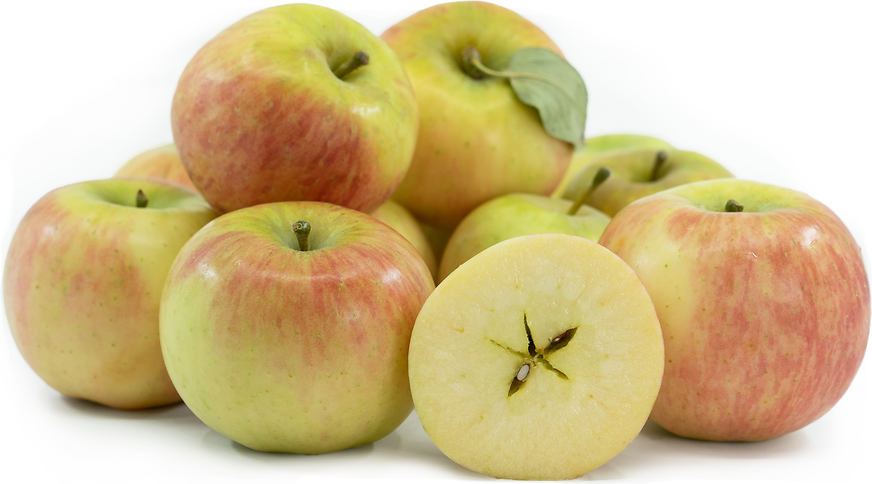


Early Fuji Apples
Estimated Inventory, lb : 0
This item was last sold on : 05/26/25
Description/Taste
Early Fuji apples are round and large. It has a mostly red colored skin with small patches of golden yellow blush and light vertical striations. The Early Fuji has a white to cream-colored, dense, yet crisp flesh. Complex in flavor, low in acidity and very sweet with notes of both honey and citrus.
Seasons/Availability
Early Fuji apples are available in the early fall months throughout the winter.
Current Facts
The Early Fuji apple is a member of the Rosaceae family in the Malus domestica species. Early Fuji apples have all of the positive characteristics of the Fuji apple but it ripens five to six weeks earlier than the original variety. The Auvil Early Fuji ™ apple was discovered by the renown Washington State apple grower, Grady Auvil. This patented apple variety is also known as Fuji 216 cultivar and was introduced to the market in the late 1990s.
Nutritional Value
Fuji apples contain around 100 calories, along with many vitamins and minerals. They are a good source of Vitamin B, calcium, and potassium, among other things. In particular, the skin has insoluble fiber and the flesh contains soluble fiber, both of which are important for health. In total, a Fuji has about 12 percent of the daily recommended value of fiber.
Applications
Early Fujis start off the Fuji season for consumers who love this apple. They are great for eating fresh out of hand and can be used in any recipes that call for regular Fujis. Since they do not store well, they should be eaten soon after purchase, or stored in the refrigerator for a short amount of time.
Ethnic/Cultural Info
When Early Fujis first came to market, growers believed they might supplant the regular Fuji market especially in the United States. However, while growers do sell Early Fujis, regular Fujis remain popular and make up the vast majority of sales throughout the apple season.
Geography/History
Most Early Fuji apple varieties were discovered in Japan or in Washington state during the 1990s. They are now grown in both countries and enjoyed worldwide. The Auvil Early Fuji was patented in 1997, September Wonder in 2000, and Daybreak Fuji in 2002. Some early varieties such as September Wonder are now also being planted in warmer geographies such as California and Australia.




